Manual skills are essential abilities that enhance problem-solving, creativity, and practical execution. They foster cognitive development, enabling individuals to craft, repair, and create, promoting lifelong learning and adaptability.
1.1 Definition and Importance
Manual skills refer to the physical and cognitive abilities required to perform tasks that involve hand-eye coordination, dexterity, and precision. These skills are vital for problem-solving, creativity, and practical execution. By mastering manual skills, individuals can enhance their ability to craft, repair, and create, fostering independence and self-reliance. Such skills are foundational in various fields, from arts and crafts to technical trades, and are closely linked to cognitive development and innovation. The importance of manual skills lies in their ability to bridge theoretical knowledge with practical application, enabling individuals to bring ideas to life. They also play a significant role in mental and emotional well-being by providing a sense of accomplishment and fulfillment. Thus, nurturing manual skills is essential for personal growth and societal progress.
1.2 Historical Evolution
Manual skills have been integral to human development since prehistoric times, with early humans relying on tool-making and craftsmanship for survival. The evolution of manual skills is closely tied to technological advancements, as societies transitioned from primitive tools to complex machinery. Historical evidence shows that ancient civilizations, such as Egyptians and Greeks, valued manual dexterity in crafts like pottery, weaving, and metallurgy. The Middle Ages saw the rise of guilds, formalizing the mastery of manual trades. Industrialization shifted focus to machine-based production, but the resurgence of DIY culture and handmade goods highlights the enduring importance of manual skills. This historical journey underscores their adaptability and relevance across eras, from primitive tool-making to modern artisanal practices. The evolution reflects humanity’s innate desire to create and innovate, preserving these skills as a vital part of cultural heritage.
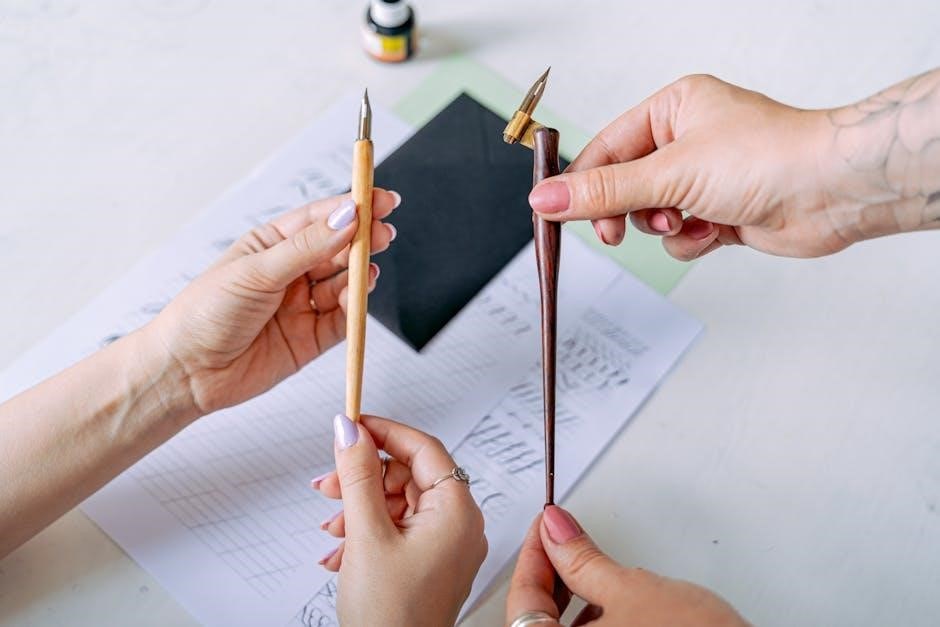
Cognitive Development
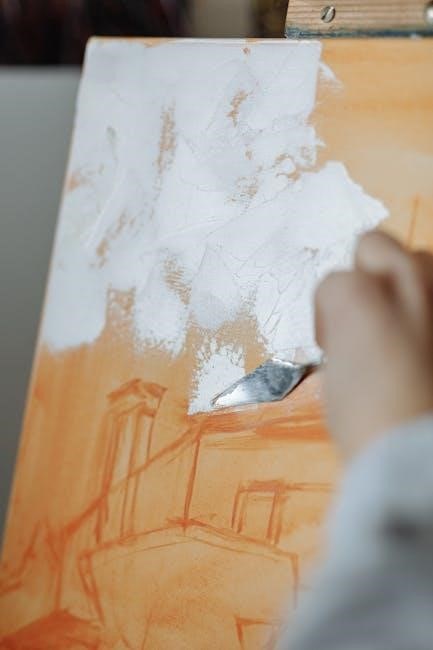
Manual skills enhance problem-solving, critical thinking, and creativity by engaging the brain in hands-on activities that require focus, spatial reasoning, and coordination, fostering intellectual growth.
2.1 Problem-Solving and Critical Thinking
Manual skills significantly enhance problem-solving and critical thinking by requiring individuals to analyze challenges, brainstorm solutions, and execute practical fixes. Activities like crafting or DIY projects encourage logical reasoning and spatial awareness; These skills help individuals break down complex tasks into manageable steps, fostering creativity and adaptability. The process of trial and error inherent in manual work sharpens analytical abilities, teaching perseverance and attention to detail. By engaging hands-on, individuals develop a deeper understanding of cause-and-effect relationships, improving their capacity to tackle real-world issues. This cognitive enhancement translates into everyday life, enabling better decision-making and resourcefulness. Thus, manual skills serve as a powerful tool for intellectual growth and practical proficiency.
2.2 Memory and Concentration
Manual skills play a crucial role in enhancing memory and concentration by engaging the brain in hands-on activities. Tasks like crafting, woodworking, or even simple repairs require focused attention, improving mental clarity. The repetition involved in these activities strengthens muscle memory, while the need to follow sequences or patterns enhances cognitive retention. Engaging in manual work also reduces distractions, fostering a state of flow that boosts concentration. Over time, these practices can improve overall mental discipline, making it easier to stay focused in various aspects of life. Additionally, the satisfaction of creating something tangible reinforces memory recall, as the brain associates the activity with a sense of accomplishment. Thus, manual skills serve as a powerful tool for sharpening memory and improving focus.
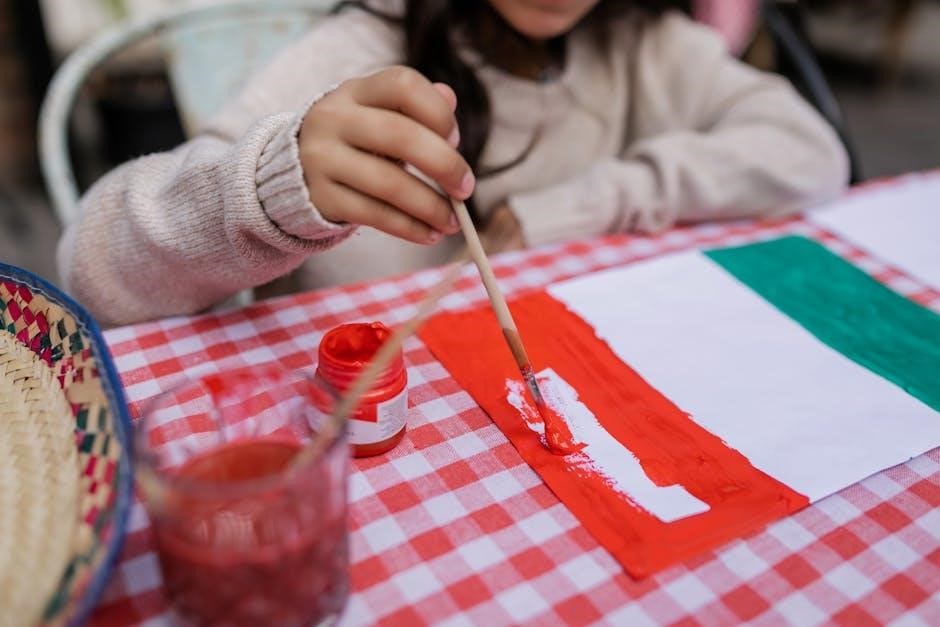
Creativity and Innovation
Manual skills foster creativity by enabling individuals to experiment with materials and techniques, leading to innovative solutions and unique, tangible expressions that enhance problem-solving abilities creatively.
3.1 Artistic Expression
Manual skills play a pivotal role in artistic expression, enabling individuals to transform ideas into tangible creations. Whether through painting, sculpting, or crafting, these skills allow for precision and detail, making art more impactful. Tools and materials become extensions of the artist’s vision, fostering creativity and experimentation. The process of creating art manually cultivates patience and attention to detail, which are essential for mastering any artistic medium. Moreover, manual skills provide a therapeutic outlet, reducing stress and fostering self-expression. They empower individuals to bring their unique perspectives to life, contributing to cultural and personal growth. By honing these skills, artists can explore new techniques, pushing the boundaries of their creativity and leaving a lasting legacy in their work. Manual skills are the foundation upon which artistic expression flourishes;
3.2 DIY Projects and Customization
DIY projects and customization are vibrant expressions of manual skills, empowering individuals to create personalized and functional items. These activities foster creativity, problem-solving, and resourcefulness, allowing people to tailor objects to their preferences or needs. From woodworking to upcycling, DIY endeavors encourage innovation and self-expression, turning everyday materials into unique pieces. Manual skills enable precision and attention to detail, ensuring high-quality results. Customization also promotes sustainability by breathing new life into discarded items. Engaging in DIY projects builds confidence and satisfaction, as individuals see their ideas transform into tangible outcomes. Additionally, these projects often involve sharing knowledge and techniques within communities, fostering collaboration and learning. DIY and customization are not only practical but also meaningful ways to showcase manual skills, contributing to personal and creative growth.
Career Opportunities
Manual skills open diverse career paths, from vocational trades to entrepreneurship in handmade markets, enabling individuals to turn their craftsmanship into sustainable and fulfilling professions.
4.1 Vocational Trades
Vocational trades offer stable and rewarding careers for those with strong manual skills. These trades include carpentry, plumbing, electrical work, and automotive repair, where hands-on expertise is crucial. Many professionals in these fields start as apprentices, learning from experienced mentors to master their craft. The demand for skilled tradespeople remains high, driven by construction, manufacturing, and maintenance needs; These roles often provide job security and opportunities for advancement, especially for those willing to specialize or obtain additional certifications. Vocational trades also allow for entrepreneurship, as many skilled workers eventually open their own businesses, leveraging their manual skills to build successful careers. This path is ideal for individuals who enjoy practical work and take pride in creating tangible results.
4.2 Entrepreneurship in Handmade Markets
Entrepreneurship in handmade markets thrives on manual skills, enabling creators to craft unique, high-quality products. Artisans leverage their expertise in woodworking, textiles, pottery, and jewelry-making to cater to niche audiences seeking personalized items. The rise of online platforms like Etsy and local craft fairs has expanded opportunities for these entrepreneurs to showcase their work. Manual skills allow for customization, setting handmade goods apart from mass-produced alternatives. Many entrepreneurs build their brands around sustainability, emphasizing eco-friendly materials and ethical practices. This sector also fosters community connections, as buyers often value the story behind each handmade piece. By combining creativity with technical proficiency, entrepreneurs in handmade markets create meaningful livelihoods, turning their passion into successful businesses that resonate with discerning consumers seeking authenticity and craftsmanship.
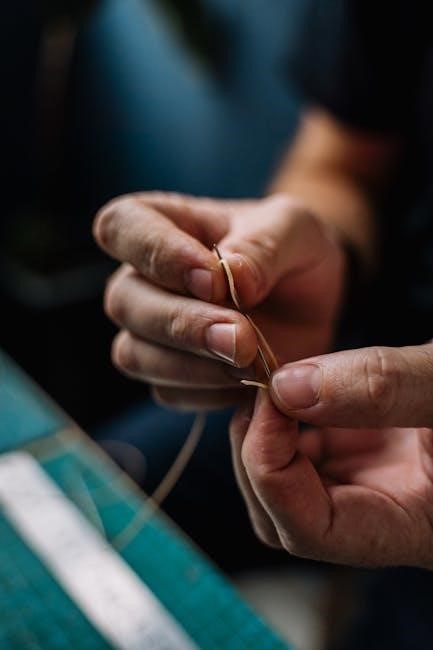
Mental Health Benefits
Manual skills offer therapeutic benefits by reducing stress and fostering mindfulness. Engaging in hands-on activities can improve focus, boost self-esteem, and provide a sense of accomplishment and relaxation.
5.1 Stress Reduction
Manual skills provide a therapeutic outlet, reducing stress by immersing individuals in hands-on activities. Crafting, woodworking, or DIY projects offer a mental escape, fostering calm and focus. The tactile nature of these tasks distracts from daily worries, promoting relaxation. Engaging in manual work can lower cortisol levels, alleviate anxiety, and enhance mood. The repetitive motions involved in tasks like knitting or pottery can be meditative, helping to clear the mind. Additionally, the sense of accomplishment from creating something with one’s own hands boosts confidence and provides a fulfilling distraction from stress. By channeling energy into productive activities, individuals can manage stress effectively, leading to a more balanced and peaceful life. Manual skills thus serve as a natural remedy for mental well-being.
5.2 Self-Esteem Building
Manual skills play a significant role in fostering self-esteem by allowing individuals to create tangible results. Completing a project with one’s own hands provides a sense of accomplishment and pride. The ability to craft, repair, or design something from scratch enhances confidence and self-worth. Overcoming challenges during the creative process reinforces resilience and self-belief. Additionally, receiving positive feedback on handmade work or DIY projects can further boost self-esteem. Engaging in manual activities helps individuals recognize their capabilities, fostering a positive self-image. This empowerment translates into other areas of life, encouraging individuals to pursue new challenges and embrace their creativity. By mastering manual skills, people develop a stronger sense of identity and self-assurance.

Learning and Mastery
Manual skills require dedication and consistent practice to achieve mastery. Educational resources and hands-on experiences guide learners, fostering a deeper understanding and proficiency over time.
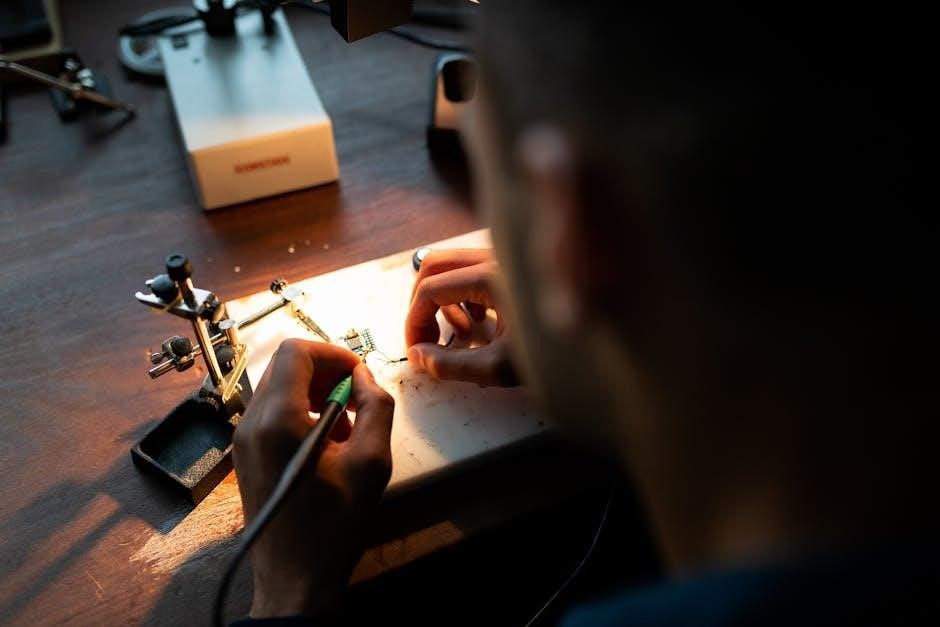
6.1 Educational Resources
Access to quality educational resources is crucial for mastering manual skills. Online tutorials, workshops, and instructional guides provide step-by-step guidance, enabling learners to practice effectively. Additionally, AI tools like Perplexity and code editors such as Cursor offer advanced learning environments, simulating human-like assistance to streamline the educational process. These resources not only enhance understanding but also promote creative problem-solving, essential for skill development. By leveraging these tools, individuals can efficiently acquire and refine their manual skills, ensuring a solid foundation for future projects and applications. The integration of technology in education has made learning more accessible and engaging, fostering a culture of continuous improvement and innovation.
6.2 Role of Practice and Patience
Mastering manual skills requires consistent practice and patience. Regular hands-on engagement helps refine techniques, builds muscle memory, and enhances precision. Patience is key, as skill development is gradual, with setbacks being part of the learning process. Tools like Perplexity and AI-powered platforms can assist by providing structured guidance, but dedication remains essential. Persistence fosters resilience, allowing individuals to overcome challenges and achieve mastery. Through deliberate practice, learners can transform raw talent into polished expertise, ensuring lasting proficiency in their chosen manual skills. The journey of skill acquisition is as rewarding as the destination, making patience and practice indispensable.
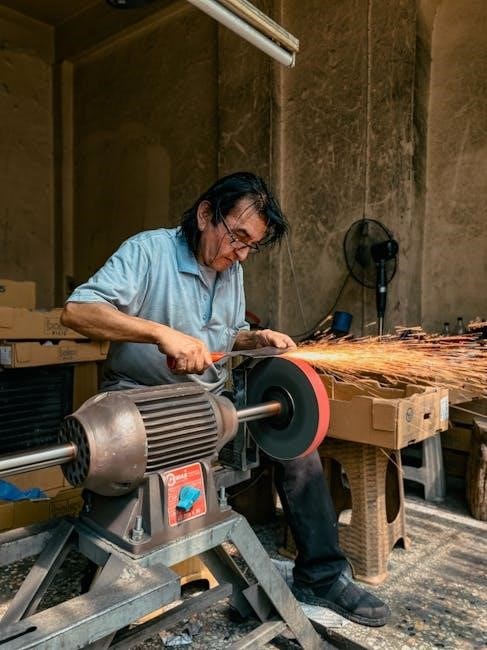



Leave a Reply
You must be logged in to post a comment.